Literature and studies on AI and sustainable finance
Navigating the volume of AI-related publications, and selecting the ones with actual relevant insights on AI applications for sustainable finance, can quickly become overwhelming.
We are listing here our own curated selection of publications, with a brief summary of the key messages for each document. This does not pretend to be comprehensive, but it shall help you spare time in identifiying relevant literature and studies.
Selected governance frameworks
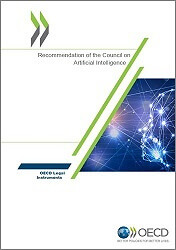
OECD - Recommendation of the Council on Artificial Intelligence
Alongside benefits, AI also raises challenges for our societies and economies, notably regarding economic shifts and inequalities, competition, transitions in the labour market, and implications for democracy and human rights. With its first version issued in 2019, the Recommendation on Artificial Intelligence was the first intergovernemental framework on AI and is still the reference on AI governance. It aims to foster innovation and trust in AI by promoting the responsible stewardship of trustworthy AI while ensuring respect for human rights and democratic values. There Recommendations were updated in 2023.
more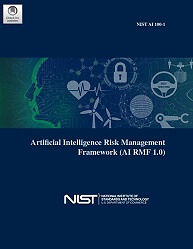
NIST - AI Risk Management Framework
The NIST (US National Institute of Standards and Technology "Artificial Intelligence Risk Management Framework" (RMF) is one of the most widely recognized standard globally when it comes to designing risk management approaches to AI deployment. The goal of the RMF is to offer a tool to the organizations designing, developing, deploying, or using AI systems to help promote trustworthy and responsible development and use of AI systems. The RMF is intended to be voluntary, rights-preserving, non-sector-specific, and use-case agnostic.
more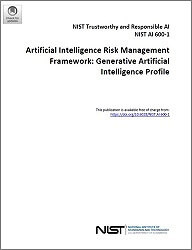
NIST - AI Risk Management Framework: GenAI Profile
This document is a cross-sectoral "profile" of and companion resource for the NIST "AI Risk Management Framework" (RMF) with a focus on Generative AI specifically. A "profile" is an implementation of the AI RMF functions, categories, and subcategories for a specific setting, application, or technology – in this case, Generative AI – based on the requirements, risk tolerance, and resources of the Framework.
more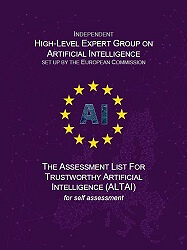
EU - Assessment List for Trustworthy AI
The Assessment List for Trustworthy AI (ALTAI) was developed in 2020 by an expert group of the EU AI Alliance. It is intended to help organisations identify how proposed AI systems might generate risks, and to identify whether and what kind of active measures may need to be taken to avoid and minimise those risks. Organisations can use it flexibly and draw on elements relevant to the particular AI system from the list, or add elements to it as they see fit.
moreOther selected papers and resources
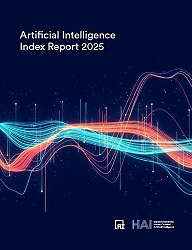
The AI Index Report 2025
Issued by Stanford University, the "AI Index Report" is the most authoritative source globally to provide a state of the progress and adoption of AI across various domains of our societies. As the authors describe themselves: "The AI Index continues to lead in tracking and interpreting the most critical trends shaping the field—from the shifting geopolitical landscape and the rapid evolution of underlying technologies, to AI’s expanding role in business, policymaking, and public life." The report is a goldmine of information.
more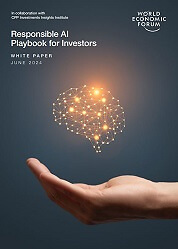
Responsible AI Playbook for Investors
The "Responsible AI Playbook for Investors," published by the World Economic Forum in collaboration with CPP Investments Insights Institute in June 2024, provides a strategic guide for investors to promote the adoption of Responsible Artificial Intelligence. The report emphasizes that AI's rapid integration across industries brings both opportunities and risks, making the implementation of responsible AI practices an imperative.
more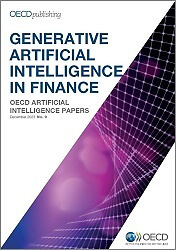
Generative Artificial Intelligence in Finance
The rapid acceleration in the pace of AI innovation in recent years and the advent of content generating capabilities have increased interest in AI innovation in finance, in part due to the user-friendliness and intuitive interface of GenAI tools. Currently, the use of GenAI in financial markets involving full end-to-end automation without any human intervention remains at early phase, but its wider deployment could amplify risks and give rise to new challenges. This OECD paper presents recent evolutions in GenAI and its slow-paced deployment in finance, analyses the potential risks from a wider use of GenAI tools by financial market participants, and discusses associated policy implications.
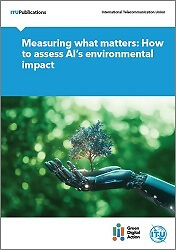
Measuring what matters: How to assess AI’s environmental impact
This report from the International Telecommunication Union (the UN agency behind the "AI for Good" initiative) synthesizes key findings from a diverse range of sources, including academic literature, corporate sustainability initiatives, and emerging environmental tracking tools. Collectively, these documents provide a broad overview of current methodologies for evaluating the environmental impacts of artificial intelligence systems.
more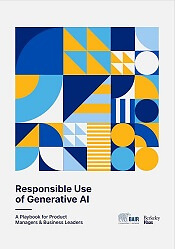
Responsible Use of Generative AI - Playbook for business leaders
The purpose of this playbook (2025) by UC Berkeley is to help product managers and organizational decision makers understand the GenAI risks and ensure genAI is rolled out and used "responsibly" in their organization. Pages 16 to 21 are the most useful ones, providing a short but clear summary of the key risks linked to GenAI.
more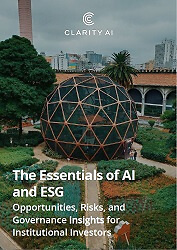
The essentials of AI and ESG
Clarity AI is a leading sustainability Fintech company, leveraging AI-powered tools to provide environmental and social insights to investors and corporates. This brief paper provides a clear summary of AI potential for sustainable investors, but also of its risks. It also includes succint recommendations on potential mitigation measures.
moreRegulatory-related materials
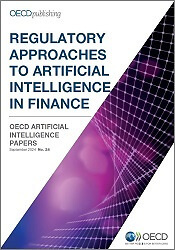
OECD - Regulatory approaches to Artificial Intelligence
This OECD report examines the policy approaches to Artificial Intelligence (AI) in finance, based on the results of a survey of 49 OECD and non-OECD jurisdictions. The report provides information on current and potential use cases of AI in finance and some of the risks observed by survey respondents and provides a stocktake of the policy frameworks applicable to the use of AI in finance in different forms.
more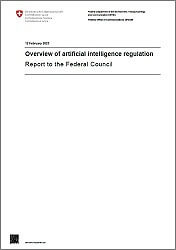
Overview of AI regulation in Switzerland
So far, there has been no overarching AI-specific legislation in Switzerland . The Federal Council has commissioned the Department of the Environment and the Department of Foreign Affairs to draw up this overview of the possible regulation of AI, which will serve as a basis for the Federal Council's decision on future legislative steps. The overview (January 2025) defines three overarching objectives that should be fulfilled by Swiss AI regulation: (1) strengthening Switzerland as an innovation location, (2) safeguarding the protection of fundamental rights, including economic freedom, and (3) strengthening public trust in AI.
more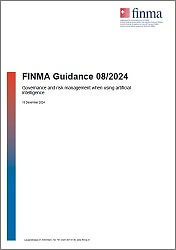
FINMA Guidance - Governance and risk management when using AI
The use of AI in the financial market is increasing. For supervised institutions, this is associated with both opportunities and risks. To date, there is no AI-specific legislation in Switzerland. In this guidance (December 2024), FINMA draws attention to the corresponding risks and the need to adequately identify, limit and control these risks.
more
 Any suggestion, comment or question? Reach out to Romain Leroy-Castillo, Director & Artificial Intelligence lead at SSF
Any suggestion, comment or question? Reach out to Romain Leroy-Castillo, Director & Artificial Intelligence lead at SSF
